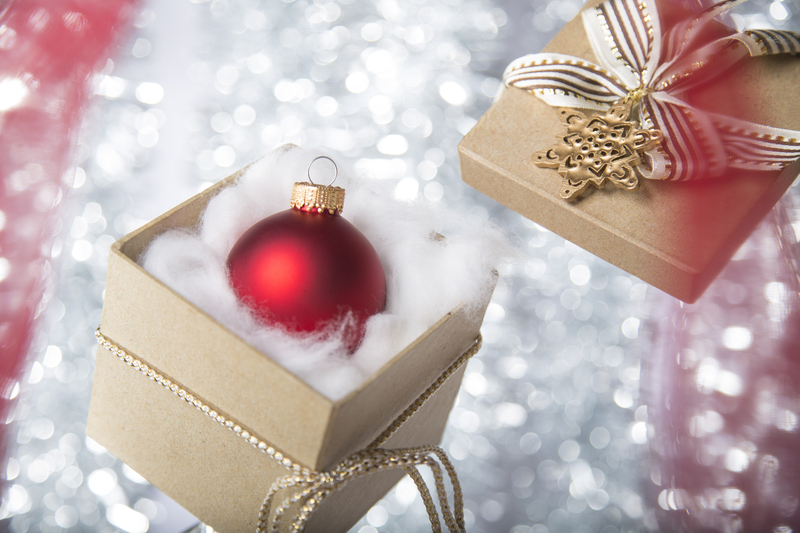Creative Ways to Dispose and Recycle Your Old Pots and Pans
Don't leave your old cookware gathering dust or rust in your kitchen cabinets--discovering how to creatively dispose or recycle pots and pans can lead to eco-friendly solutions that are both fun and functional. If you're wondering what to do with those battered frying pans, warped bakeware, or a mismatched lid, you're in the right place! In this comprehensive article, we'll explore disposal and recycling methods for old pots and pans, along with upcycling and donation options that can benefit your home and the environment.

Why It Matters: The Importance of Responsible Cookware Disposal
Before tossing a pan in the trash, consider the environmental impact--old pots, pans, and similar kitchen items are often made of metals (like stainless steel, aluminum, copper, or cast iron) that should not be sent to landfill. With sustainability at the forefront today, recycling and repurposing cookware helps reduce waste, conserves natural resources, and can even inspire creativity in your home or community.
- Metal cookware can often be recycled, but not in curbside bins.
- Nonstick coatings and plastic handles require special attention.
- Upcycling pots and pans gives them new life and keeps items out of landfills.
- Donating cookware helps those in need and supports local charities.
How to Prepare Old Pots and Pans for Recycling or Disposal
Before you drop off your old pots at the recycling center or donate them, follow these essential steps:
- Clean thoroughly: Remove any food residue or grease. Most centers require items to be clean.
- Detach non-metal parts: Unscrew or remove any plastic, rubber, or wooden handles and lids, as many recycling programs accept only pure metal parts.
- Check your cookware type: Identify what your pan is made of: stainless steel, aluminum, copper, or cast iron--this affects where and how it can be recycled.
1. How to Recycle Old Pots and Pans Properly
The key to recycling old pots and pans lies in understanding local recycling programs. Many municipalities don't accept cookware in regular recycling bins, but scrap metal yards often do.
Scrap Metal Centers: Turning Trash Into Treasure
- Locate a local scrap metal recycling facility. Search online or check your city's recycling guidelines to find drop-off points.
- Drop off only metal parts. As mentioned, remove any non-metal components.
- Ask about nonstick cookware acceptance. Some yards do not accept Teflon-coated pans due to chemical residue, so call ahead.
Retailer Take-Back Programs
- Some retailers (such as Target, Best Buy, or even local kitchen specialty shops) offer take-back or trade-in programs for old kitchenware. Check with local stores for recycling or safe disposal options--they can often dispose of old pans responsibly or may offer a discount on new items.
2. Donate Old Pots and Pans to a Worthy Cause
If your old cookware is still in usable condition, donating pots and pans brings benefits to both recipient organizations and the environment. Here's how you can make a difference:
Where to Donate Cookware
- Local thrift stores and charities: Goodwill, The Salvation Army, and local homeless shelters often need cookware.
- Food banks, soup kitchens, or women's shelters: These organizations frequently cook for large groups and appreciate extra supplies.
- Refugee and resettlement programs: New arrivals need help setting up homes from scratch.
- Post on online community boards: Websites like Freecycle, Craigslist, and Facebook Marketplace allow you to offer items for free locally.
Donation Tips
- Clean and disinfect items before donating.
- Pair pots with matching lids, if possible.
- Bundle sets for greater appeal.
3. Upcycling and Repurposing: Give Old Pots and Pans a Second Life
Repurposing cookware is one of the most creative ways to recycle old pots and pans. Transforming these everyday objects into functional art or home decor can add a personal touch while reducing waste.
Ingenious DIY Upcycling Ideas
- Planters and Flower Pots: Turn deep saucepans or Dutch ovens into quirky, rust-resistant planters for your balcony or yard. Drill a few drainage holes in the bottom.
- Bird Baths or Feeders: Large skillet? Use it as a bird bath (add stones for perching) or as a creative bird feeder.
- Garden Art: Stack old pots to make whimsical garden totems or mushroom sculptures. Paint them with weatherproof paint for extra color.
- Storage Containers: Use shallow pans to organize garden tools, craft supplies, or kitchen odds and ends.
- Wall Clocks or Chalkboards: With a bit of chalkboard paint or a clock kit, your battered frying pan can become a unique kitchen wall clock or message board.
- Candle Holders: Small saucepans or muffin tins are perfect as creative bases for homemade candles.
- Pet Bowls: Heavy-duty pots, after thorough cleaning, can serve as durable food or water bowls for pets.
For more inspiration, check out DIY forums, Pinterest, or YouTube for upcycling projects for old cookware.
4. Safe Disposal for Non-Recyclable Cookware
Not all pots and pans are easily recycled. Nonstick coated pans (such as Teflon), enamel cookware with chips, or pans with significant rust may not be accepted at metal recycling centers.
- Contact your waste management provider for guidance. Many cities have special collection days or drop-off sites for household hazardous waste (HHW), which sometimes includes nonstick cookware due to chemicals.
- If landfill disposal is unavoidable: Remove lids, handles, or other parts that can be recycled separately, and ensure the pan is as clean as possible.
This option should be reserved as a last resort after attempting to recycle, upcycle, or donate.
Special Considerations for Different Types of Pots and Pans
Cookware comes in a variety of materials; knowing the specifics helps you choose the right disposal or recycling route.
- Stainless Steel & Aluminum: Both are highly recyclable through scrap metal centers. Separate from any non-metal attachments first.
- Cast Iron: Also recyclable and sometimes repairable (try re-seasoning for reuse), or repurposed as weights, garden anchors, or rustic decor.
- Copper: If you have copper pots, these are valuable as scrap--never discard them in household waste!
- Nonstick (Teflon/ceramic): Usually not accepted by regular scrap recyclers--check with specialty waste handlers or seek out manufacturer take-back programs if available.
- Enamel or Ceramic: These can sometimes be upcycled but rarely recycled.
Frequently Asked Questions About Disposing of Old Cookware
Q: Can you put old pans in the curbside recycling bin?
Typically, no. Most curbside recycling programs do not accept old pots and pans, even if they're made of metal. Use a scrap metal recycling facility.
Q: What should you do with pots and pans with damaged nonstick coating?
These are unlikely to be accepted at metal recyclers due to chemical residue. Look for specialty recycling programs or dispose of via household hazardous waste collection.
Q: Can you repurpose all types of old cookware?
Yes! Even badly scratched or dented pans can become planters, organizers, or art pieces. Just be sure to avoid using for food if the surface is degraded.
Q: Are there any brands that recycle old cookware?
Some manufacturers, like Calphalon or GreenPan, occasionally offer recycling or trade-in programs. Check their websites or customer service.
Q: Can old pots and pans be composted?
No. Metal, ceramic, and nonstick items do not break down in compost. Look for recycling or reuse options instead.

Tips to Slow Down Future Cookware Waste
Reducing how often you need to dispose or recycle pots and pans can help minimize environmental impact even further. Here's how:
- Choose high-quality cookware that lasts longer and is easier to repair or recycle.
- Practice proper cleaning and maintenance to extend the life of your pots and pans.
- Avoid metal utensils on nonstick surfaces to prevent scratching and flaking.
- Rotate cookware and store it properly to avoid damage.
- When buying new, look for brands with eco-friendly manufacturing practices or take-back programs.
Conclusion: Give Your Old Pots and Pans a Sustainable Sendoff!
The creative disposal and recycling of old pots and pans opens up a world of possibilities--whether you opt for recycling at a scrap metal center, donate your gently used items, or transform them into unique home and garden decor. By considering the type and condition of your cookware and opting for responsible solutions, you'll help make your kitchen routine greener and more resourceful.
Ready to get started? Take inventory of your old pans today and try one or more of these sustainable, inventive options. Your kitchen, your community, and the planet will thank you!
For more smart recycling and upcycling tips, subscribe to our newsletter or explore our related articles below.
